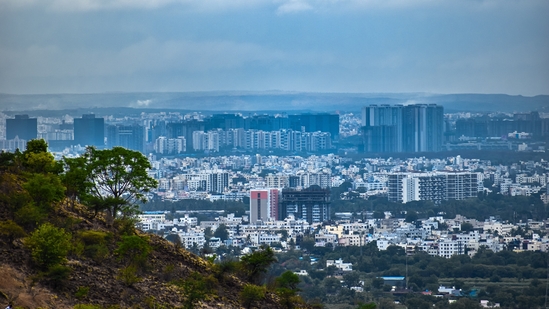Karnataka caste survey tabled, govt set to discuss findings on April 17
The caste survey report was submitted to chief minister Siddaramaiah by Karnataka State Commission for Backward Classes chairman K Jayaprakash Hegde on February 29 last year.
The much-awaited socio-economic and education survey report, commonly referred to as the caste census report, was on Friday presented before the Karnataka cabinet, which is likely to deliberate on the contents and recommendations mentioned in the 2015 survey report in a meeting scheduled for April 17.

The caste survey report was submitted to chief minister Siddaramaiah by Karnataka State Commission for Backward Classes chairman K Jayaprakash Hegde on February 29 last year. The survey data includes caste-wise figures for all assembly constituencies as well as analytical reports prepared after its submission to the government.
Confirming the development, Siddaramaiah told reporters: “There are a few recommendations in it. Some ministers said they want to go through the recommendations first. After reviewing them, we will discuss it in the cabinet meeting on next Thursday (April 17) and take a decision.”
A senior minister informed HT that the caste survey report is in 50 volumes divided into two boxes. While the first box contains the complete 2015 survey findings, caste-wise population data, and key indicators of scheduled castes and scheduled tribes, among others, the second box features volumes on social and economic indicators of non-SC/ST communities, taluk-wise data, and additional information sourced from secondary reports.
The survey, which was commissioned by Siddaramaiah in 2015 during his first tenure as chief minister (2013 to 2018), covered around 13.8 million households comprising 59.8 million individuals, or roughly 94.17% of the state’s then estimated population of 63.5 million.
“Only 37 lakh (3.7 million) people are out of its ambit, which means 5.83% missed the survey,” state’s backward class development minister Shivaraj Tangadagi told reporters.
The survey, which cost ₹192.79 crore to the exchequer, was prepared with the help of 160,000 officials, including 79 IAS officers. In the exercise, 54 data points, including religion, caste, occupation, income, expenditure, education, economical condition, assets, debts, and movable properties, were collected from residents.
Though the Congress-led government has emphasised the scientific basis and scale of the survey, its legitimacy continues to face scrutiny, especially after a portion of its leaked report allegedly disputed the numerical strength of Lingayats and Vokkaligas — the dominant castes in the southern state.
The leaked data indicated a decrease in the population of Lingayats from 17-18% to below 10%, and of Vokkaligas from around 14% to nearly 8%. It also elevated Dalits as the largest group at around 24% and nearly 55% of Karnataka’s population belonging to backward classes.
Earlier, a schism had surfaced within the ruling Congress regarding the release of the survey findings, with Siddaramaiah and his deputy DK Shivakumar being at odds over the matter.
On Friday, at least six ministers SS Mallikarjun, Laxmi Hebbalkar, MC Sudhakar, K Venkatesh, RB Timmapur, and Madhu Bangarappa — representing various communities including Lingayat, Vokkaliga, SC, and Idiga — skipped the cabinet meeting.
Senior Congress leader and state’s law minister MB Patil, however, clarified there was no dissent within the Cabinet. “All ministers accepted the Cabinet decision irrespective of caste and community considerations,” he added.
Reacting to the development, leader of Opposition in the assembly R Ashoka alleged that the caste survey report lacked scientific credibility and was crafted with the intention of creating social division for political gain.
“The people conducting the caste census did not visit every household. This report was prepared under Chief Minister Siddaramaiah’s instructions,” the Bharatiya Janata Party (BJP) leader told reporters in Bengaluru.
Saying that he supported the idea of a caste census, he claimed the current report lacked legitimacy due to its political underpinnings. “Since it has political motives, no one will accept it. I, too, am saying that a caste census should be conducted. But this report was designed to sow discord among castes for someone’s benefit. This is exactly what Congress wants,” he added.






